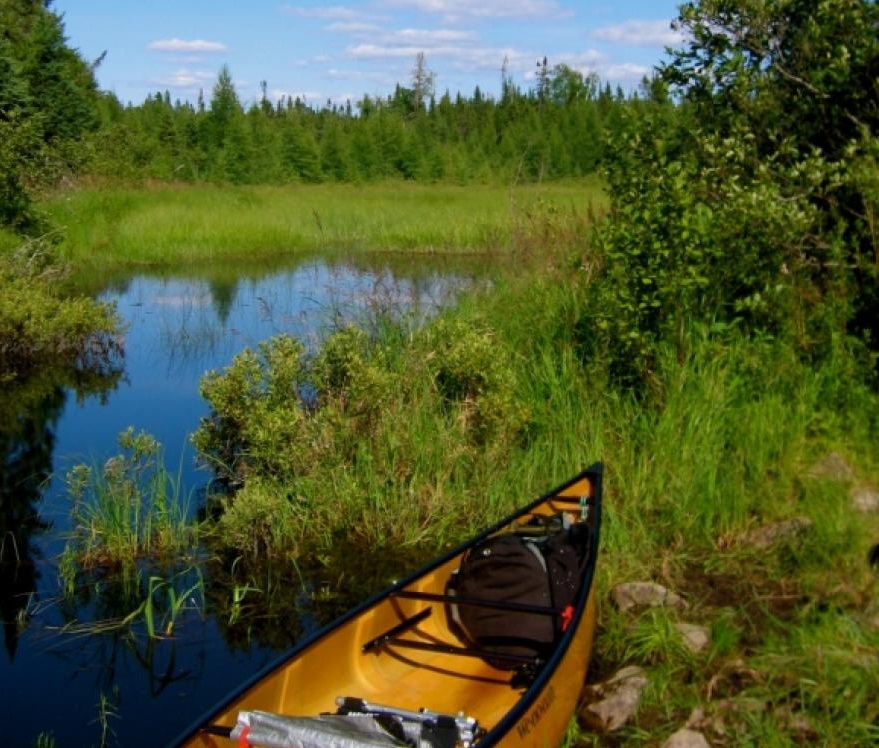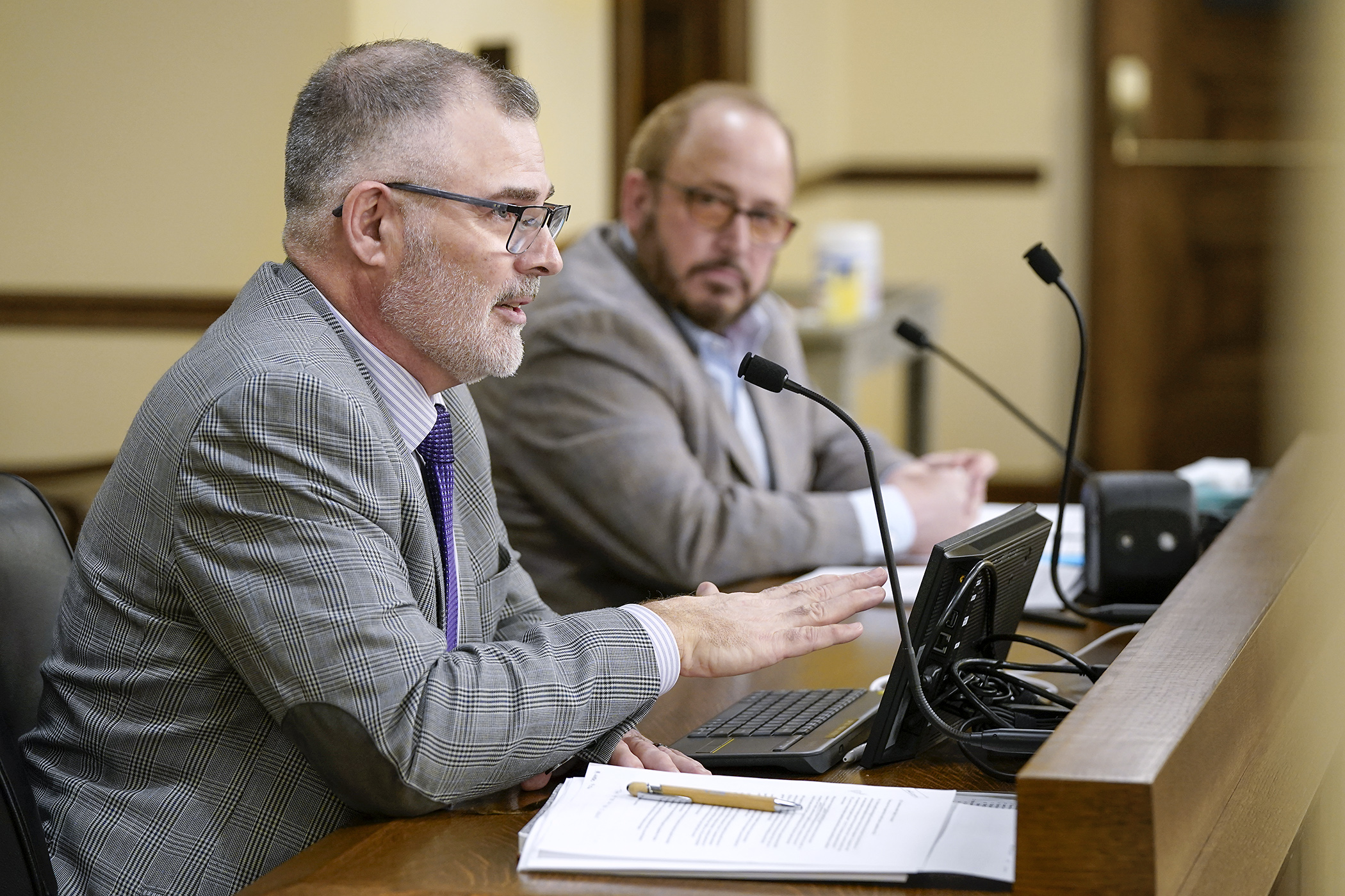Proposed sale of school trust lands inside Boundary Waters Canoe Area faces pushback in House

When Minnesota became a state in 1858, the federal government set aside portions of land across the state as “School Trust Lands” to be used to support Minnesota’s public schools, through generating interest and dividends.
But 80,000 acres of that land set aside more than 150 years ago is now within the boundaries of the Boundary Waters Canoe Area Wilderness, established in 1978, and it essentially is unable to generate income.
So, maybe the state should sell the land to the U.S. Forest Service and invest the proceeds?
That’s a good idea and would have the best return on investment, says Aaron Vande Linde, director of the School Trust Lands. The trust is legally charged with acting in the best fiduciary interest of the trust lands it manages.
Not so fast, says Rep. Roger Skraba (R-Ely), who sponsors HF1425 that would prohibit such a sale.
The House Environment and Natural Resources Finance and Policy Committee laid the bill over Tuesday for consideration in a committee bill.
Skraba prefers that ongoing discussions continue among the Department of Natural Resources, the school trust office and the U.S. Forest Service to swap the 80,000 acres in Cook, Lake and St. Louis counties with an equivalent acreage outside the BWCAW.
That’s a better deal, Skraba said, noting that the exchange would open up the acreage in the swap for economic development. He envisions the economic development on the swapped-for land would be mostly from timber harvesting, and potential mineral rights.
“Our communities need wood products to survive,” he said.
The current deal being considered would sell the acres to the U.S. Forest Service at a rate of just $375 per acre.
“The offer as it stands right now is $30 million for all 80,000 acres,” Skraba said. “That is not a deal. That is not something the state of Minnesota should do. I think we’re better stewards of the land; I think we can do a better job.”
But Linde says an October 2024 analysis by his office reveals that even at the low sale price, the $30 million purchase price would grow into nearly $850 million in 50 years assuming historical interest rates achieved by the fund.
 Aaron Vande Linde, director of the Minnesota Office of School Trust Lands, testifies before the House environment committee March 11 regarding HF1425 that would prohibit the sale of state-owned land in the Boundary Waters Canoe Area Wilderness. Rep. Roger Skraba is the sponsor. (Photo by Michele Jokinen)
Aaron Vande Linde, director of the Minnesota Office of School Trust Lands, testifies before the House environment committee March 11 regarding HF1425 that would prohibit the sale of state-owned land in the Boundary Waters Canoe Area Wilderness. Rep. Roger Skraba is the sponsor. (Photo by Michele Jokinen)“Investing in stocks and bonds yields significantly higher returns compared to investing in industrial forestland, both in absolute terms and in annualized return on investment,” Linde said.
Skraba said the financial calculations indicating a better financial outcome assume the state’s past investment success will continue.
The sale of land being discussed between the state and the U.S. Forest Service is anticipated to be completed by the end of 2026, according to the school trust office.
If a sale occurs, the U.S. Forest Service would manage the lands in accordance with the BWCAW Act and the Superior National Forest Land and Resource Management Plan. Lands would remain open to the public for recreational activities and the public would not expect any change in their access to recreation within the BWCAW.
Related Articles
Search Session Daily
Advanced Search OptionsPriority Dailies
Speaker Emerita Melissa Hortman, husband killed in attack
By HPIS Staff House Speaker Emerita Melissa Hortman (DFL-Brooklyn Park) and her husband, Mark, were fatally shot in their home early Saturday morning.
Gov. Tim Walz announced the news dur...
House Speaker Emerita Melissa Hortman (DFL-Brooklyn Park) and her husband, Mark, were fatally shot in their home early Saturday morning.
Gov. Tim Walz announced the news dur...
Lawmakers deliver budget bills to governor's desk in one-day special session
By Mike Cook About that talk of needing all 21 hours left in a legislative day to complete a special session?
House members were more than up to the challenge Monday. Beginning at 10 a.m...
About that talk of needing all 21 hours left in a legislative day to complete a special session?
House members were more than up to the challenge Monday. Beginning at 10 a.m...